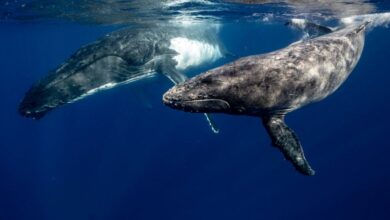How Can You Help Protect Whales while Watching
Whales are majestic creatures, captivating us with their enormous size and graceful movements. Watching these gentle giants in their natural habitat is a breathtaking experience, but it also comes with a responsibility. As you embark on your whale-watching adventure, you have the power to make a positive impact on their lives. Here are some essential ways to protect whales while enjoying their beauty.
Respect Wildlife Regulations
Before heading out to sea, familiarize yourself with local regulations regarding whale watching. Many regions have specific guidelines in place to protect marine life, including speed limits for boats and designated viewing distances. Adhering to these regulations not only ensures your safety but also minimizes stress for the whales. Keeping a respectful distance allows them to behave naturally, promoting their well-being and conservation.
Choose Responsible Tour Operators
Selecting a reputable whale-watching tour operator is crucial. Look for companies that prioritize the welfare of marine life and follow ethical practices. Responsible operators often have trained naturalists on board who can provide valuable insights into whale behaviors and conservation efforts. Research online reviews and seek recommendations to find a tour that aligns with your values. By supporting responsible businesses, you contribute to a sustainable whale-watching industry.
Minimize Noise Pollution
Whales rely on sound for communication and navigation, making noise pollution a significant threat to their well-being. As a whale watcher, you can help by keeping noise levels to a minimum. Avoid shouting or playing loud music during your excursion. If you’re on a boat, consider turning off engines or idling when near whales to reduce sound disturbances. By promoting a quieter environment, you help these magnificent animals thrive in their natural habitat.
Be Mindful of Waste
Environmental stewardship extends beyond the water’s edge. When you’re on a whale-watching trip, be conscious of your waste. Bring reusable containers for food and drinks, and avoid single-use plastics that can pollute the ocean. Properly dispose of garbage and encourage others to do the same. Marine debris poses a significant threat to whales and other marine life, so every small action counts in reducing overall pollution.
Educate Yourself and Others
Knowledge is power. Take the time to learn about the different species of whales, their habitats, and the challenges they face. Understanding the threats these creatures encounter—such as climate change, fishing practices, and habitat loss—empowers you to advocate for their protection. Share your knowledge with friends and family, encouraging them to participate in conservation efforts. By raising awareness, you can inspire others to take action and become stewards of the sea.
Support Conservation Organizations
Numerous organizations are dedicated to protecting whales and their habitats. Consider supporting these groups through donations, volunteering, or participating in awareness campaigns. Many organizations also offer educational resources that can enhance your understanding of marine conservation. By aligning with conservation efforts, you help create a collective impact, advocating for policies that protect these incredible creatures and their ecosystems.
Report Distressed Whales
If you encounter a whale in distress during your outing, it’s essential to take action. Whether the whale appears entangled or is exhibiting unusual behavior, report your observations to local marine authorities or conservation organizations. They can assess the situation and determine the best course of action. Your vigilance can make a significant difference in the life of a whale in need.
Taking Action for the Future
Your whale-watching experience can be more than just a thrilling adventure; it can be a meaningful opportunity to contribute to the preservation of these magnificent creatures. By respecting regulations, choosing ethical tours, minimizing waste, and educating yourself and others, you become an advocate for the ocean’s giants. Every effort counts, and together, we can ensure that future generations will continue to marvel at the wonders of the deep blue sea and its incredible inhabitants.







